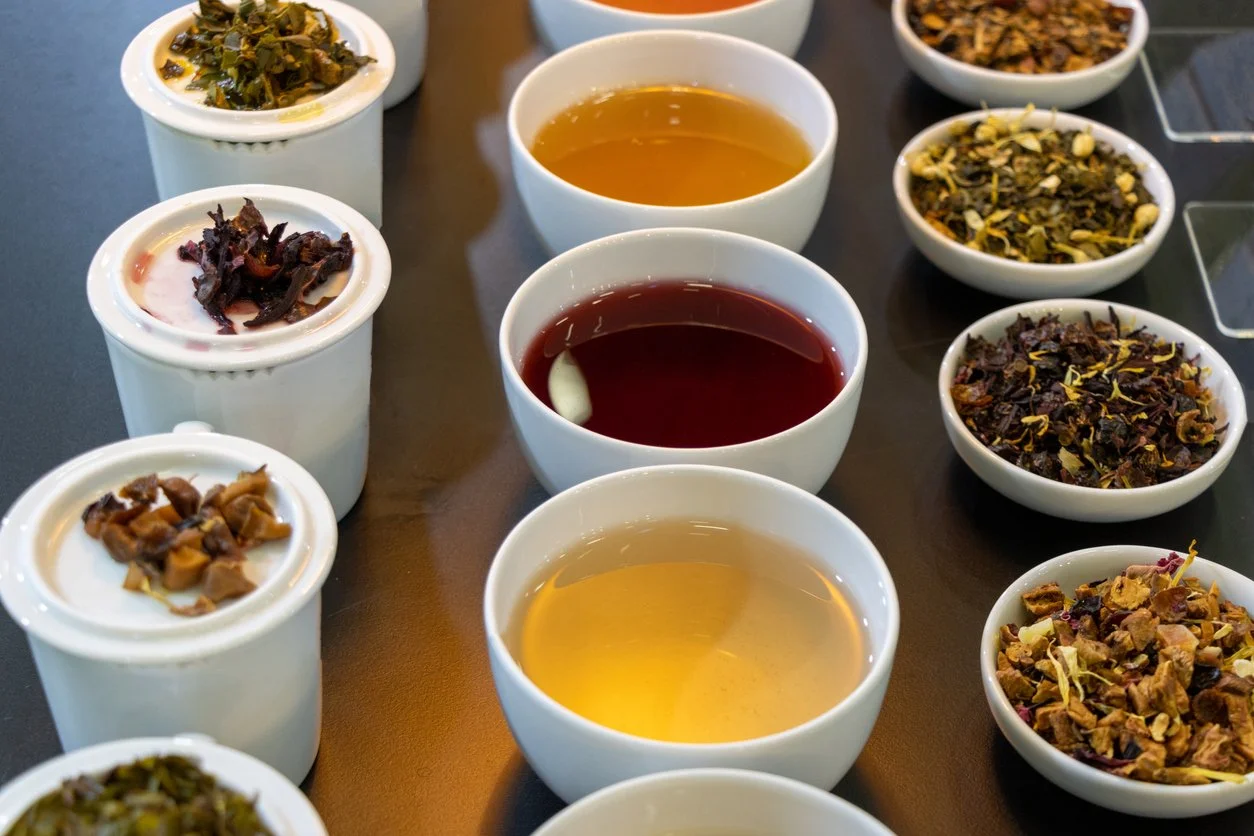With the First Snow Comes Tea - and a Little Gut Healing
With the First Snow Comes Tea - and a Little Gut Healing
It’s getting colder here in Switzerland, and the mountain tops are starting to show their first coat of snow. I love watching that shift from green to white, especially with a cup of tea in my hands and the quiet view from my window.
The colder months invite us to slow down, curl up, and savor those cozy moments. But there’s something else they bring too, a natural opportunity to nourish our bodies in a different way.
When the temperature drops, our digestion often slows down as well. The good news? This season offers plenty of simple ways to support it, starting right in your kitchen.
Gut Care Starts in the Kitchen
Gut care isn’t always a supplement protocol or a restrictive food plan. Sometimes, it begins with something as ordinary as what you reach for while stirring soup or steeping tea.
Before probiotics came in capsules, people turned to herbs and spices, ingredients that carried warmth, aroma, and gentle digestive support. These simple additions do more than adding flavor to your food. They send signals to your gut: soften, digest, ease.
Here are seven worth keeping close this winter, especially when your belly feels tense, reactive, or just a little off.
1. Ginger : A Settling Warmth When Digestion Feels Sluggish
Ginger doesn’t push. It nudges. It helps when meals sit heavy or bloating starts before the plate is empty. Its subtle heat supports natural movement through your digestive tract.
Try this: Slice a few coins into hot water with lemon before a heavier meal, or grate into stir-fries, soups, or broths.
2. Fennel: A Soothing End to a Full Meal
There’s a reason fennel seeds appear at the end of big meals in traditional cultures. They relax digestive muscles and ease trapped gas, bringing soft relief.
Try this: Lightly toast fennel seeds and steep in hot water for a calming post-meal tea. Or add ground fennel to roasted root vegetables or curries.
3. Turmeric: A Softening Presence for an Inflamed Gut
Turmeric works quietly, supporting the gut lining and encouraging balance over time. If your system feels reactive or inflamed, turmeric may help things settle.
Try this: Stir into soups, golden milk, or warm rice bowls. A pinch of black pepper helps unlock its deeper benefits.
4. Coriander: A Gentle Aid for Unpredictable Digestion
Coriander supports balance whether your digestion feels too fast or too slow. It reintroduces a sense of rhythm without overstimulation.
Try this: Blend ground coriander with cumin and fennel for a soothing spice mix, or steep the whole seeds for a light, citrusy tea.
5. Cumin: For Warmth and Flow When You Feel Stuck
When digestion stalls, cumin adds warmth without heaviness. It can help kickstart the process and ease that lingering fullness.
Try this: Dry-roast whole cumin seeds and sprinkle with sea salt as a simple snack, or fold into lentils, grains, and stews.
6. Peppermint: A Cool Breath for a Tense Gut
Peppermint helps relax the muscles around your digestive tract, especially when cramping or tightness shows up. If reflux is an issue, though, skip this one.
Try this: Sip a warm peppermint tea after dinner, or add fresh leaves to chilled water for a refreshing twist.
7. Oregano: Quiet Support for Microbial Balance
Oregano offers gentle antimicrobial benefits, especially after antibiotics or travel when your gut microbiome feels off.
Try this: Add to tomato sauces, sprinkle over roasted vegetables, or steep a few leaves for an earthy tea.
What Makes It Sustainable?
You’re not chasing expensive supplements or new routines. These herbs and spices may already be in your kitchen, waiting to be used with intention.
What Makes It Personal?
There’s no checklist, just patterns. Maybe fennel tea settles your stomach after lunch, or ginger feels soothing when you’re traveling. Let your body’s cues guide what you use.
A Quick Recap
Bloated or gassy? Try fennel or ginger.
Digestive discomfort with fatigue? Turmeric may help from the inside out.
Post-antibiotic or post-travel reset? Oregano can support microbial balance.
Sluggish digestion or heaviness after meals? Cumin or coriander can help.
Cramping or tightness? Peppermint might bring ease.
Let your gut be your guide. Not every herb will suit you, and that’s part of the process. Pay attention to what feels grounding and what brings relief. Over time, these small, intentional choices help you build a stronger relationship with your digestion, one that feels doable, supportive, and responsive.
If you’d like support building habits that fit your body’s rhythms, let’s talk.


